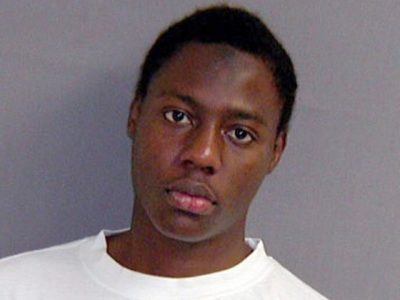Yemeni Trial & Nigerian Air Travel Humiliation

Christmas Day Bomber Defiant, Pleads Guilty
Abdulmutallab’s Guilty Plea and a Nation’s Pain
Twenty-four-year-old Umar Farouk Abdulmutallab pleaded guilty in October 2011. This occurred despite his legal team’s objections.
He is the son of a respected Nigerian banker. A chilling video surfaced recently. It shows him at a terrorist training camp in Yemen. It ties him to Al Qaeda and Anwar al‑Awlaki—the same cleric linked to the Fort Hood shooter.
The timing of that video? Suspicious. It appeared as the trial began. US authorities had said Abdulmutallab cooperated. They said he was providing intelligence on Al Qaeda. His family even joined him in the US to help.
In court, Abdulmutallab paused only briefly before attacking. He called America “a cancer” and warned that “The mujahadeen will wipe out the US.”
Experts suggest the video’s release was strategic. Al Qaeda aimed to tarnish sympathy for Abdulmutallab and quash possible plea deals.
His influential family has remained silent. They issued a brief statement days after the incident, and then went quiet.
The Joke Turning Sour: Nigerians and Air Travel
The 2009 attempted bomber on Northwest Airlines sparked jokes. Many came at the expense of all Nigerians. A popular satirical list mocked Nigerian passengers.
It has 38 “rules” for Nigerians traveling to the US, and highlights biased profiling, including:
-
Never ask for a toilet break.
-
Avoid bringing any containers or electronics.
-
Do not admit you are Nigerian—say you’re from fictional places like “Zamunda.”
-
Women must avoid wigs or hairpieces.
-
Always travel with proof you’re Christian.
-
Undergo full-body searches with a smile.
While humorous in tone, the list painfully reflects real prejudice.
Aftermath: Politics, Investigation, and Fallout
In the aftermath, US Senator John McCain criticized the Obama administration for assigning a U.S. lawyer to Abdulmutallab. Abdulmutallab faced six criminal charges for attempting to detonate explosives onboard a plane.
He allegedly revealed during interrogation that 20 similar Al Qaeda plots were in progress in Yemen. That disclosure shifted political responsibility to President Obama. He later admitted intelligence failures allowed the attack to slip through.
Security tightened. Pat-downs and strict screenings expanded for passengers from nations deemed “high-risk”—including Nigeria, Cuba, Iran, Syria, and others.
Cuba swiftly protested its inclusion on the list. This move triggered outcry. Many countries condemned it as unfair and discriminatory.
The Real Toll: On Identity and Air Travel
Nigerians abroad experienced the brunt of this fallout. Once-charismatic travelers, they became walking targets for suspicion at airports worldwide. People who had done nothing wrong now faced glass ceilings—on flights.
This isn’t just a travel inconvenience. It affects identity, pride, and belonging.
One slipped smile while being frisked. One question about luggage placement. It chips away at dignity.
African travelers must remain aware that global fears often translate into daily bias. But many refuse to stay silent or ashamed.
They challenge it. They speak out. They change the narrative.
🧭 What We Learn
| Takeaway | Insight |
|---|---|
| Terror’s Ripple Effect | One misguided individual can harm millions through association. |
| Racial Profiling Is Real | Humour can highlight ugly truths in public policy. |
| Speak Out | Relentless discrimination must be called out. |
| Policy Matters | Stronger intelligence cooperation helps prevent attacks. |
📝 At Feelnubia, we believe in balancing rigor with compassion. Let’s reject blanket suspicion. Let’s address violence, but not turn it into bias. Let’s carry our identity with pride—even, and especially, when travelers are judged before they’ve spoken.
 PRESS STATEMENT BY ABDULMUTALLAB FAMILY
PRESS STATEMENT BY ABDULMUTALLAB FAMILYSHOULD NIGERIA BE ON THE TERROR WATCH LIST FOR THE ACTIONS OF ONE MAN?
